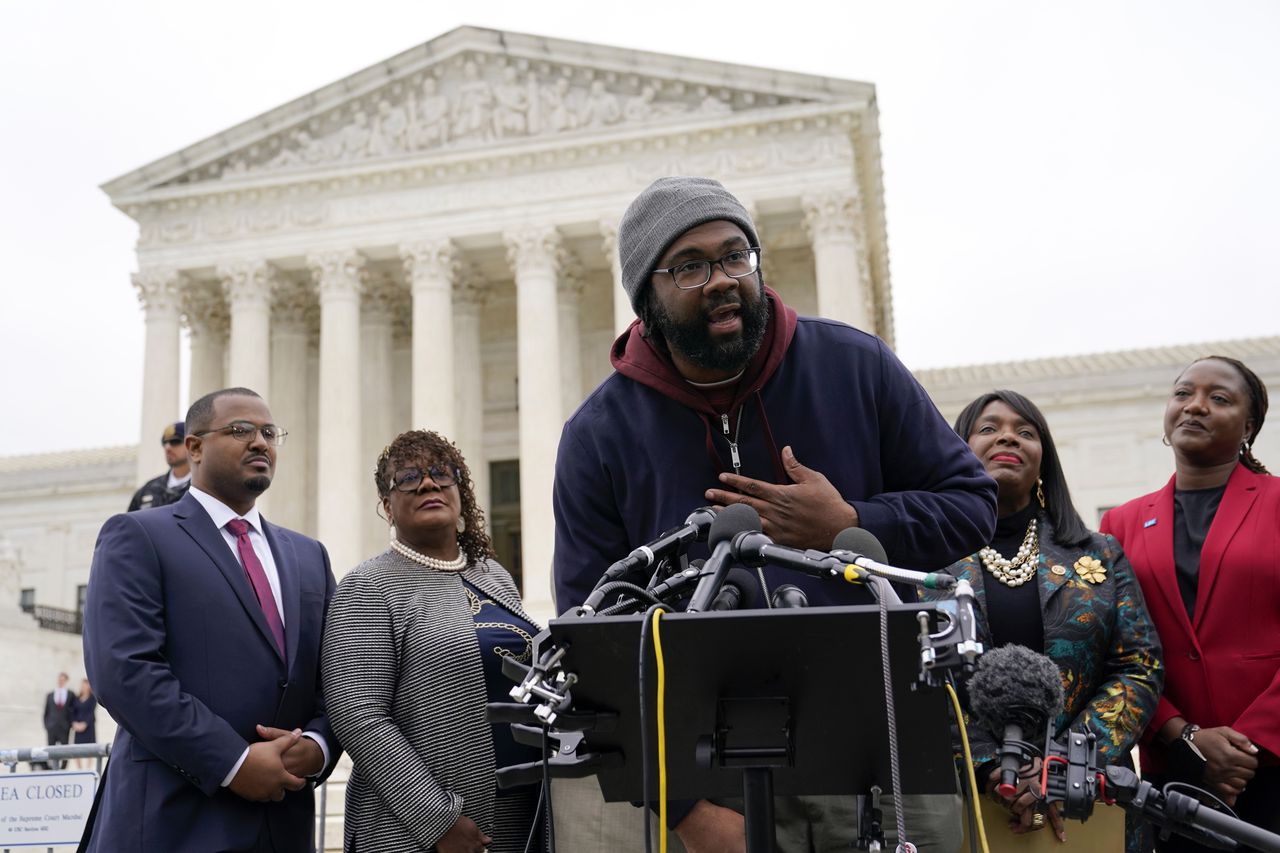Supreme Court rules Alabama congressional map most likely violates Voting Rights Act
The Supreme Court on Thursday issued a surprising ruling in favor of Black voters in an Alabama congressional redistricting case, ordering the creation of a second district with a large Black population, the Associated Press reported.
Chief Justice John Roberts and Justice Brett Kavanaugh joined with the court’s liberals in affirming a lower-court ruling that found a likely violation of the Voting Rights Act in an Alabama congressional map with one majority Black seat out of seven congressional districts in a state where more than one in four residents is Black, AP reported.
The case had been closely watched for its potential to weaken the landmark voting rights law.The U.S. Supreme Court ruled Thursday that Alabama’s congressional district map, with six majority white districts out of seven, most likely violates the Voting Rights Act.
The justices heard oral arguments in the case in October and issued the opinion Thursday morning.
A three-judge federal panel in January 2022 ordered Alabama to redraw the congressional map to add a second district that was majority or near-majority Black. The judges, including two appointees of President Trump, ruled after a seven-day hearing that the plan most likely violated the Voting Rights Act. “Black voters have less opportunity than other Alabamians to elect candidates of their choice to Congress,” they wrote.
In February 2022, the Supreme Court put that decision on hold at Alabama’s request to allow the map to be used in the 2022 elections. However, the justices did not rule on the merits of the Voting Rights claims, and that decision came Thursday morning.
“The Court affirms the District Court’s determination that plaintiffs demonstrated a reasonable likelihood of success on their claim that HB1 (the redistricting bill) violates (Section 2 of the Voting Right Act),” the opinion says. “The District Court faithfully applied this Court’s precedents in concluding that HB1 likely violates (Section 2).
Individual voters and organizations filed lawsuits in 2021, challenging the district map approved by the Alabama Legislature after the 2020 census.
The plaintiffs alleged that the map violated Section 2 of the Voting Rights Act, which prohibits election laws and procedures that are racially discriminatory. A key contention was that Black residents make up 27% of Alabama’s population, but only one of the seven Congressional districts, or 14%, had a majority Black population.
The upcoming decision comes 10 years after the Supreme Court issued an important ruling on the Voting Rights Act in another Alabama case, Shelby County v. Holder, which ended the requirement for Alabama and other states with a history of racial discrimination on voting to seek preclearance from the Justice Department on election law changes.
Evan Milligan, executive director of the organization Alabama Forward and a lead plaintiff in the redistricting case, told AL.com in May that the decision in the current case, called Allen (for Secretary of State Wes Allen) v. Milligan, will help determine the viability of the Voting Rights Act in stopping racial gerrymandering of districts.
Read more: U.S. Supreme Court could decide soon whether Alabama’s congressional map violates Voting Rights Act
Lawyers representing state officials and defending the current map have argued that it is similar to those adopted after the census in 2000 and the census in 2010, which were both precleared by the Justice Department.
The state’s lawyers said the Legislature drew the current map with race-neutral criteria, making changes to adjust to the population shifts needed after the 2020 census.
They argued that the three-judge panel that ruled in favor of the plaintiffs made a legal error in their interpretation of the Voting Rights Act, saying that to draw a second majority Black district would require “race-based sorting,” or putting race ahead of all other considerations.
